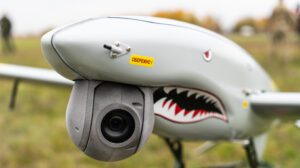
The European Commission (EC) on Tuesday proposed a new strategy for the further development of the European drone market.
“The new strategy explains how Europe can carry out large-scale commercial drone operations while offering new opportunities in the sector,” according to an EC communiqué published in Brussels.
The document notes that “thanks to the EU’s comprehensive regulatory framework, drones have been flying safely in European skies for hundreds of thousands of hours, for example to survey infrastructure, monitor oil spills or take soil samples.
The EU has also been successful in developing projects to use drones in medicine, such as transporting medical samples between health services.
Brussels has announced that the introduction in January 2023 of “the world’s only European U-space secure drone traffic control system” will lay the groundwork for expanding the types of operations that use them.
But before promoting these innovative technologies, the European Commission wants to make sure that society supports this type of air transport, the EC document said. Therefore, the new strategy calls on national, regional and local municipalities to ensure that drone services meet the needs of citizens, including addressing issues such as noise, safety and privacy in the use of the machines.
The strategy foresees that by 2030 the following drone services will be an integral part of European life: emergency services, mapping, imaging, inspection and surveillance by civilian drones within the scope of current legislation, and the delivery of small consignments of urgent supplies such as biological samples or medicines.
The strategy looks ahead to innovative aerial mobility services such as air cabs, which provide regular passenger transportation, initially with a pilot on board, but with the ultimate goal of fully automated operations, according to an EC communiqué.